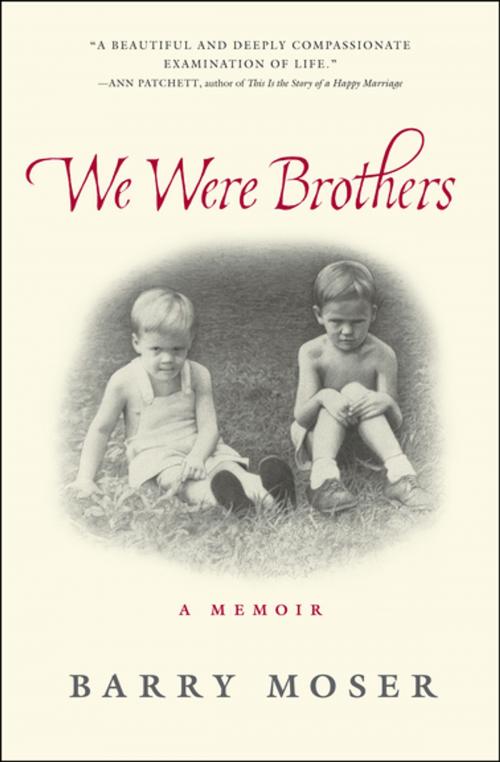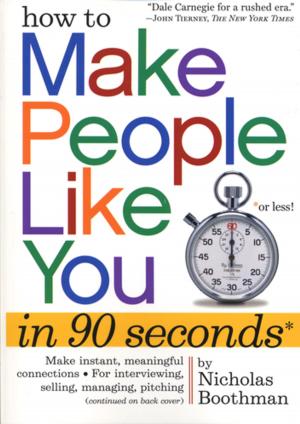We Were Brothers
A Memoir
Biography & Memoir, Artists, Architects & Photographers, Nonfiction, History, Americas, United States| Author: | Barry Moser | ISBN: | 9781616205447 |
| Publisher: | Workman Publishing | Publication: | October 20, 2015 |
| Imprint: | Algonquin Books | Language: | English |
| Author: | Barry Moser |
| ISBN: | 9781616205447 |
| Publisher: | Workman Publishing |
| Publication: | October 20, 2015 |
| Imprint: | Algonquin Books |
| Language: | English |
This story of Southern siblings is “a complex meditation on how two men who grew up together came away with diametrically opposing views” (The Boston Globe).
Brothers Barry and Tommy Moser were born of the same parents in Chattanooga, Tennessee; slept in the same bedroom; went to the same school—and were both poisoned by their family’s deep racism and anti-Semitism. But as they grew older, their perspectives and paths grew further and further apart.
Barry left Chattanooga for New England and a life in the arts; Tommy stayed put and became a mortgage banker. From attitudes about race to food, politics, and money, the brothers began to think so differently that they could no longer find common ground. For nearly forty years, there was more strife between them than affection.
After one particularly fractious conversation, their fragile relationship fell apart. With the raw emotions that so often surface when we talk of our siblings, Barry recalls how they were finally able to traverse that great divide and reconcile their troubled brotherhood before it was too late.
In We Were Brothers, “Barry Moser writes about the savagery of racism and the savagery between brothers with thoughtful introspection. In his efforts to understand both what he did and what was done to him, he has given us a beautiful and deeply compassionate examination of life” (Ann Patchett).
“A powerful evocation of an era in which African-American children could play in a white person’s yard but weren’t allowed into the house. And it’s a moving portrait of two men—loving but wary, and capable of beauty even in the presence of the ugliest flaws.” —Minneapolis Star-Tribune
“Might prove especially poignant and comforting to people navigating difficult family relationships.” —Michel Martin, weekend host of NPR’s All Things Considered
This story of Southern siblings is “a complex meditation on how two men who grew up together came away with diametrically opposing views” (The Boston Globe).
Brothers Barry and Tommy Moser were born of the same parents in Chattanooga, Tennessee; slept in the same bedroom; went to the same school—and were both poisoned by their family’s deep racism and anti-Semitism. But as they grew older, their perspectives and paths grew further and further apart.
Barry left Chattanooga for New England and a life in the arts; Tommy stayed put and became a mortgage banker. From attitudes about race to food, politics, and money, the brothers began to think so differently that they could no longer find common ground. For nearly forty years, there was more strife between them than affection.
After one particularly fractious conversation, their fragile relationship fell apart. With the raw emotions that so often surface when we talk of our siblings, Barry recalls how they were finally able to traverse that great divide and reconcile their troubled brotherhood before it was too late.
In We Were Brothers, “Barry Moser writes about the savagery of racism and the savagery between brothers with thoughtful introspection. In his efforts to understand both what he did and what was done to him, he has given us a beautiful and deeply compassionate examination of life” (Ann Patchett).
“A powerful evocation of an era in which African-American children could play in a white person’s yard but weren’t allowed into the house. And it’s a moving portrait of two men—loving but wary, and capable of beauty even in the presence of the ugliest flaws.” —Minneapolis Star-Tribune
“Might prove especially poignant and comforting to people navigating difficult family relationships.” —Michel Martin, weekend host of NPR’s All Things Considered















